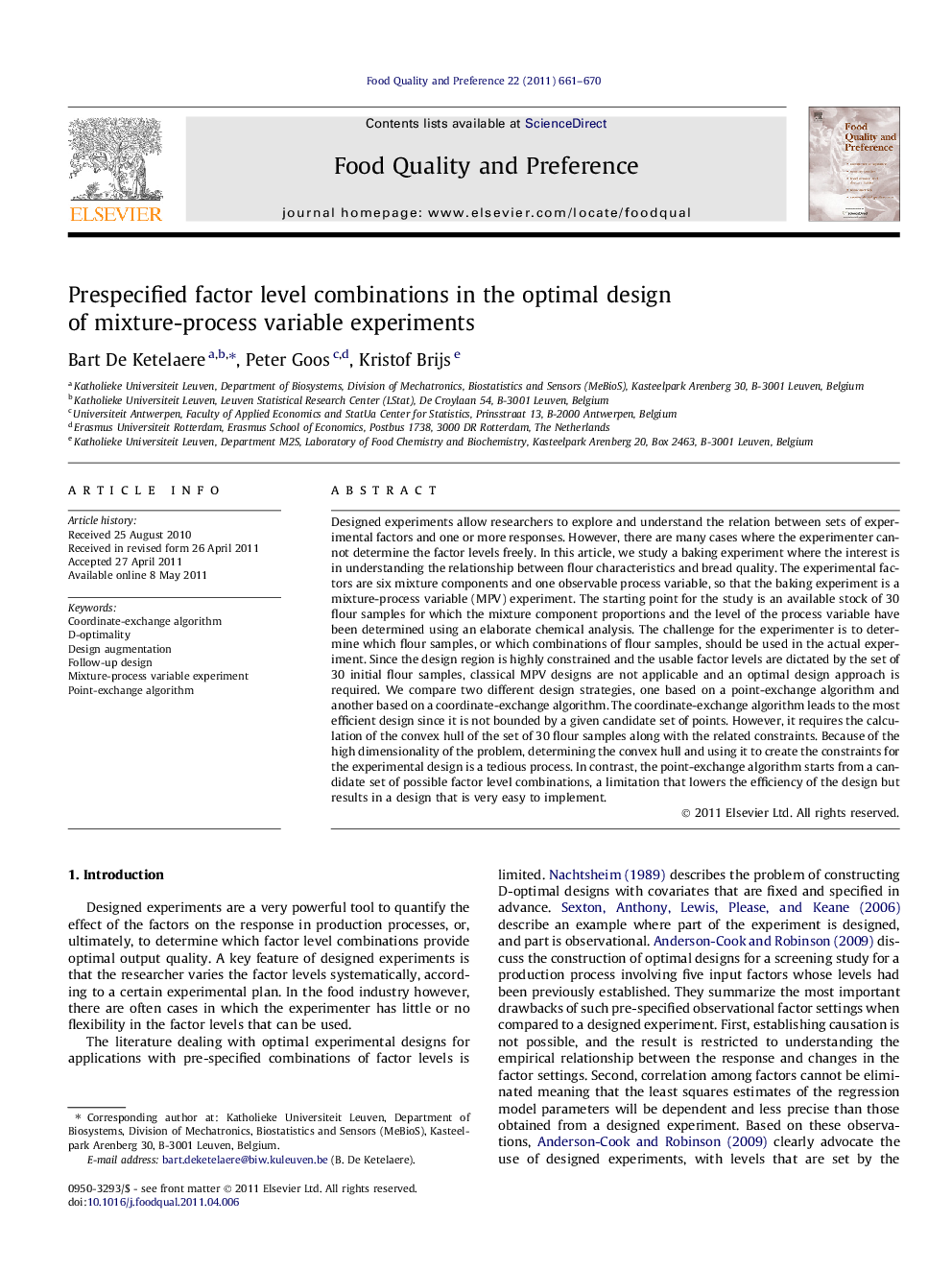| کد مقاله | کد نشریه | سال انتشار | مقاله انگلیسی | نسخه تمام متن |
|---|---|---|---|---|
| 4317587 | 1290603 | 2011 | 10 صفحه PDF | دانلود رایگان |

Designed experiments allow researchers to explore and understand the relation between sets of experimental factors and one or more responses. However, there are many cases where the experimenter cannot determine the factor levels freely. In this article, we study a baking experiment where the interest is in understanding the relationship between flour characteristics and bread quality. The experimental factors are six mixture components and one observable process variable, so that the baking experiment is a mixture-process variable (MPV) experiment. The starting point for the study is an available stock of 30 flour samples for which the mixture component proportions and the level of the process variable have been determined using an elaborate chemical analysis. The challenge for the experimenter is to determine which flour samples, or which combinations of flour samples, should be used in the actual experiment. Since the design region is highly constrained and the usable factor levels are dictated by the set of 30 initial flour samples, classical MPV designs are not applicable and an optimal design approach is required. We compare two different design strategies, one based on a point-exchange algorithm and another based on a coordinate-exchange algorithm. The coordinate-exchange algorithm leads to the most efficient design since it is not bounded by a given candidate set of points. However, it requires the calculation of the convex hull of the set of 30 flour samples along with the related constraints. Because of the high dimensionality of the problem, determining the convex hull and using it to create the constraints for the experimental design is a tedious process. In contrast, the point-exchange algorithm starts from a candidate set of possible factor level combinations, a limitation that lowers the efficiency of the design but results in a design that is very easy to implement.
► Optimal design of mixture-process variable experiments with pre-specified factor levels.
► Point exchange as well as coordinate exchange algorithms are discussed.
► Applied to a practical example from the food industry.
► Technical appendix with implementation instructions.
Journal: Food Quality and Preference - Volume 22, Issue 7, October 2011, Pages 661–670